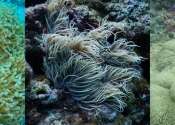Study reveals how ancient fish colonized the deep sea
The deep sea contains more than 90% of the water in our oceans, but only about a third of all fish species. Scientists have long thought the explanation for this was intuitive—shallow ocean waters are warm and full of resources, ...









